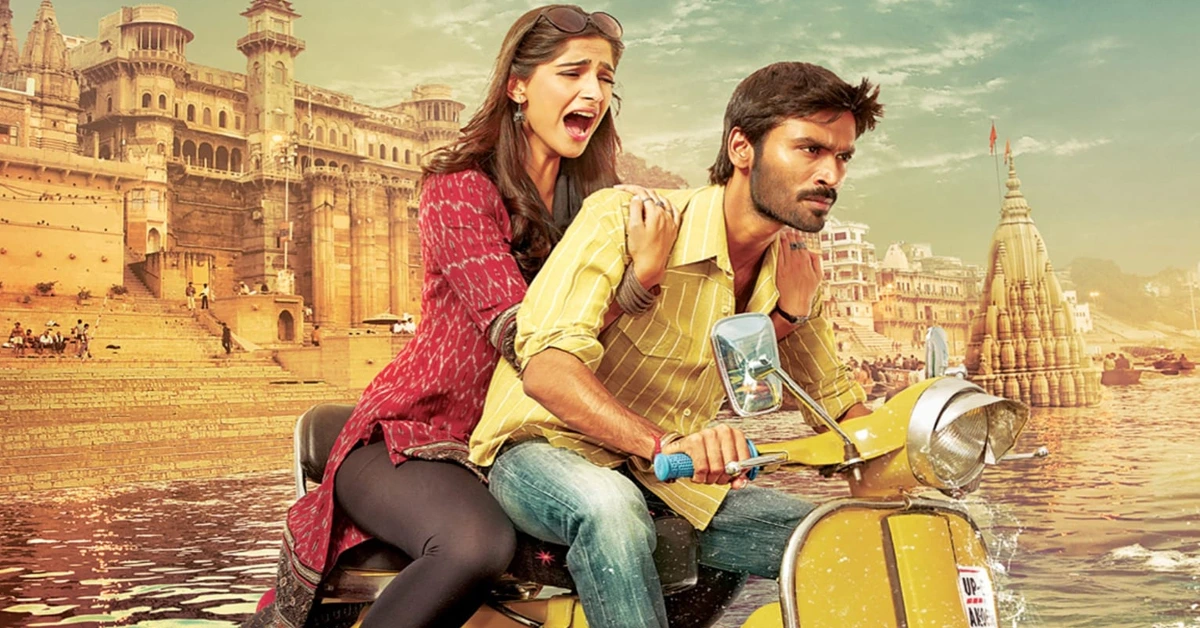
In a landmark clash between creative integrity and technological reinvention, the 2013 cult classic Raanjhanaa, directed by Aanand L Rai and starring Dhanush and Sonam Kapoor, has resurfaced in cinemas—this time with an alternate, AI-engineered “happy ending” that replaces its celebrated tragic climax.
The abrupt shift, unveiled in the Tamil-dubbed version titled Ambikapathy, has ignited a fierce debate over artistic ownership and the ethics of AI in filmmaking.
A Vision Altered Without Consent
Originally, the film ends with the protagonist Kundan’s tragic death, followed by a poignant montage in Varanasi that cements the emotional weight of the story.
The AI version, re-released earlier this month, subverts that ending—showing Kundan waking from death to embrace his grieving friends, reframing the narrative as hopeful rather than mournful.
Neither the director nor the writer was informed of this alteration. Aanand L Rai publicly expressed his shock, condemning the re-release as an “abject betrayal” and a “reckless takeover” of a work born from “human hands, human flaws, and human feeling.”
He asserted that the reimagined version undermines the soul of the film and stated that legal options are being actively considered.
Dhanush: “They Stripped It of Its Soul”
Lead actor Dhanush echoed Rai’s sentiment in a statement titled For the Love of Cinema, where he described feeling “completely disturbed” by the AI-altered version.
He stated that the new ending had “stripped the film of its very soul” and emphasised the importance of respecting the emotional and narrative integrity of cinematic storytelling.
For the love of cinema ? pic.twitter.com/VfwxMAdfoM
— Dhanush (@dhanushkraja) August 3, 2025
Dhanush also confirmed he was neither consulted nor informed about the changes prior to the release.
Eros Defends Its Rights
Eros International, which holds the distribution rights to Raanjhanaa, has defended its decision. The studio claims the AI version is a “creative reimagining” and not a replacement of the original. According to the company, the new ending was intended as an alternate viewing experience tailored to regional audiences, particularly for the Tamil-speaking market.
Eros maintains that it holds full legal rights to the film, including those that allow for narrative modifications. The company also stated that the original version remains intact and accessible, and that this re-release does not diminish the legacy of the 2013 film.
Industry Figures Join The Debate
The controversy has drawn sharp reactions from across the film industry. Actor and filmmaker Farhan Akhtar publicly voiced support for Aanand L Rai and Dhanush, stating that if a creator is unhappy about their work being altered, their concerns must be respected.
Director Neeraj Pandey and several screenwriters have also raised alarm bells, warning against AI being used to override a creator’s vision without consent.
Many view the incident as a dangerous precedent in an age where AI technology is evolving faster than the ethical frameworks governing its use in art.
The Legal Path Forward
Both Aanand L Rai and Dhanush have indicated their intent to pursue legal remedies. Their concern extends beyond this one film—they fear that if unchecked, similar alterations could affect other cinematic works in the future.
Rai has specifically warned that other films from his portfolio may be at risk if such practices are normalised.
The issue of "moral rights"—which allow creators to object to distortion or modification of their work—could become a focal point of the legal battle ahead.
Why It Matters: More Than Just A New Ending
This controversy touches a nerve far deeper than a reimagined movie climax. It highlights an increasingly urgent question in the entertainment world: Who gets to decide the fate of a story once it’s told?
The AI-generated ending may appeal to some audiences seeking closure, but for many—including the film’s creators—it amounts to rewriting history without permission.
In an era where AI can replicate voices, faces, and now endings, Raanjhanaa has become more than just a film—it’s a frontline in the war over artistic integrity in the age of machines.
ALSO READ | Shut Out At Home: The Relentless Struggle Of Assamese Cinema
The Story Mug is a Guwahati-based Blogzine. Here, we believe in doing stories beyond the normal.